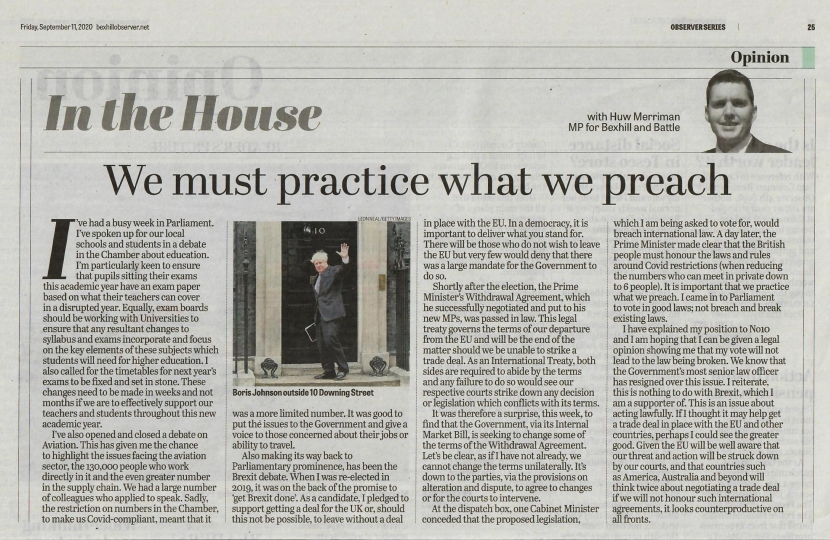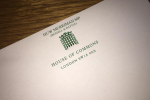
I’ve had a busy week in Parliament. I’ve spoken up for our local schools and students in a debate in the Chamber about education. I’m particularly keen to ensure that pupils sitting their exams this academic year have an exam paper based on what their teachers can cover in a disrupted year. Equally, exam boards should be working with Universities to ensure that any resultant changes to syllabus and exams incorporate and focus on the key elements of these subjects which students will need for higher education. I also called for the timetables for next year’s exams to be fixed and set in stone. These changes need to be made in weeks and not months if we are to effectively support our teachers and students throughout this new academic year.
I’ve also opened and closed a debate on Aviation. This has given me the chance to highlight the issues facing the aviation sector, the 130,000 people who work directly in it and the even greater number in the supply chain. We had a large number of colleagues who applied to speak. Sadly, the restriction on numbers in the Chamber, to make us Covid-compliant, meant that it was a more limited number. It was good to put the issues to the Government and give a voice to those concerned about their jobs or ability to travel.
Also making its way back to Parliamentary prominence, has been the Brexit debate. When I was re-elected in 2019, it was on the back of the promise to ‘get Brexit done’. As a candidate, I pledged to support getting a deal for the UK or, should this not be possible, to leave without a deal in place with the EU. In a democracy, it is important to deliver what you stand for. There will be those who do not wish to leave the EU but very few would deny that there was a large mandate for the Government to do so.
Shortly after the election, the Prime Minister’s Withdrawal Agreement, which he successfully negotiated and put to his new MPs, was passed in law. This legal treaty governs the terms of our departure from the EU and will be the end of the matter should we be unable to strike a trade deal. As an International Treaty, both sides are required to abide by the terms and any failure to do so would see our respective courts strike down any decision or legislation which conflicts with its terms.
It was therefore a surprise, this week, to find that the Government, via its Internal Market Bill, is seeking to change some of the terms of the Withdrawal Agreement. Let’s be clear, as if I have not already, we cannot change the terms unilaterally. It’s down to the parties, via the provisions on alteration and dispute, to agree to changes or for the courts to intervene.
At the dispatch box, one Cabinet Minister conceded that the proposed legislation, which I am being asked to vote for, would breach international law. A day later, the Prime Minister made clear that the British people must honour the laws and rules around Covid restrictions (when reducing the numbers who can meet in private down to 6 people). It is important that we practice what we preach. I came in to Parliament to vote in good laws; not breach and break existing laws.
I have explained my position to No10 and I am hoping that I can be given a legal opinion showing me that my vote will not lead to the law being broken. We know that the Government’s most senior law officer has resigned over this issue. I reiterate, this is nothing to do with Brexit, which I am a supporter of. This is an issue about acting lawfully. If I thought it may help get a trade deal in place with the EU and other countries, perhaps I could see the greater good. Given the EU will be well aware that our threat and action will be struck down by our courts, and that countries such as America, Australia and beyond will think twice about negotiating a trade deal if we will not honour such international agreements, it looks counterproductive on all fronts.



